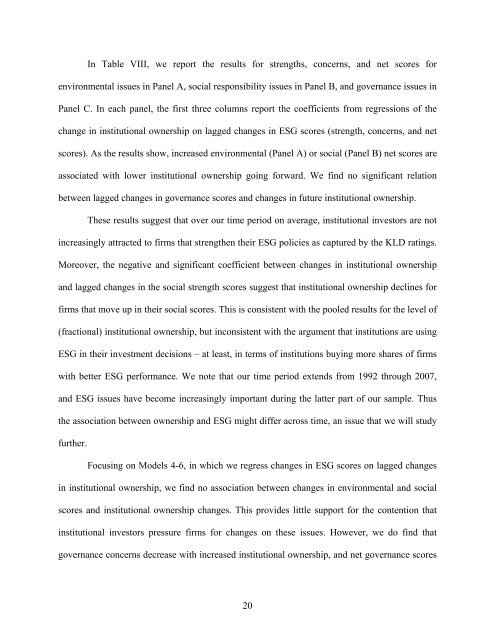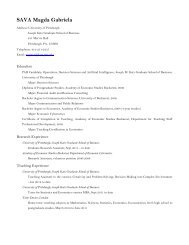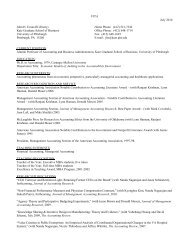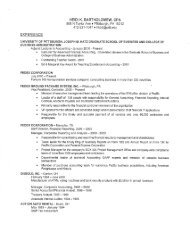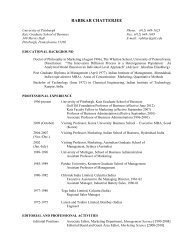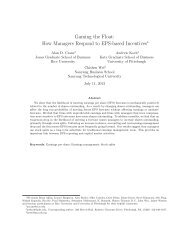Stuart L. Gillan, Jay C. Hartzell, Andrew Koch, and ... - Pitt Business
Stuart L. Gillan, Jay C. Hartzell, Andrew Koch, and ... - Pitt Business
Stuart L. Gillan, Jay C. Hartzell, Andrew Koch, and ... - Pitt Business
Create successful ePaper yourself
Turn your PDF publications into a flip-book with our unique Google optimized e-Paper software.
In Table VIII, we report the results for strengths, concerns, <strong>and</strong> net scores for<br />
environmental issues in Panel A, social responsibility issues in Panel B, <strong>and</strong> governance issues in<br />
Panel C. In each panel, the first three columns report the coefficients from regressions of the<br />
change in institutional ownership on lagged changes in ESG scores (strength, concerns, <strong>and</strong> net<br />
scores). As the results show, increased environmental (Panel A) or social (Panel B) net scores are<br />
associated with lower institutional ownership going forward. We find no significant relation<br />
between lagged changes in governance scores <strong>and</strong> changes in future institutional ownership.<br />
These results suggest that over our time period on average, institutional investors are not<br />
increasingly attracted to firms that strengthen their ESG policies as captured by the KLD ratings.<br />
Moreover, the negative <strong>and</strong> significant coefficient between changes in institutional ownership<br />
<strong>and</strong> lagged changes in the social strength scores suggest that institutional ownership declines for<br />
firms that move up in their social scores. This is consistent with the pooled results for the level of<br />
(fractional) institutional ownership, but inconsistent with the argument that institutions are using<br />
ESG in their investment decisions – at least, in terms of institutions buying more shares of firms<br />
with better ESG performance. We note that our time period extends from 1992 through 2007,<br />
<strong>and</strong> ESG issues have become increasingly important during the latter part of our sample. Thus<br />
the association between ownership <strong>and</strong> ESG might differ across time, an issue that we will study<br />
further.<br />
Focusing on Models 4-6, in which we regress changes in ESG scores on lagged changes<br />
in institutional ownership, we find no association between changes in environmental <strong>and</strong> social<br />
scores <strong>and</strong> institutional ownership changes. This provides little support for the contention that<br />
institutional investors pressure firms for changes on these issues. However, we do find that<br />
governance concerns decrease with increased institutional ownership, <strong>and</strong> net governance scores<br />
20


